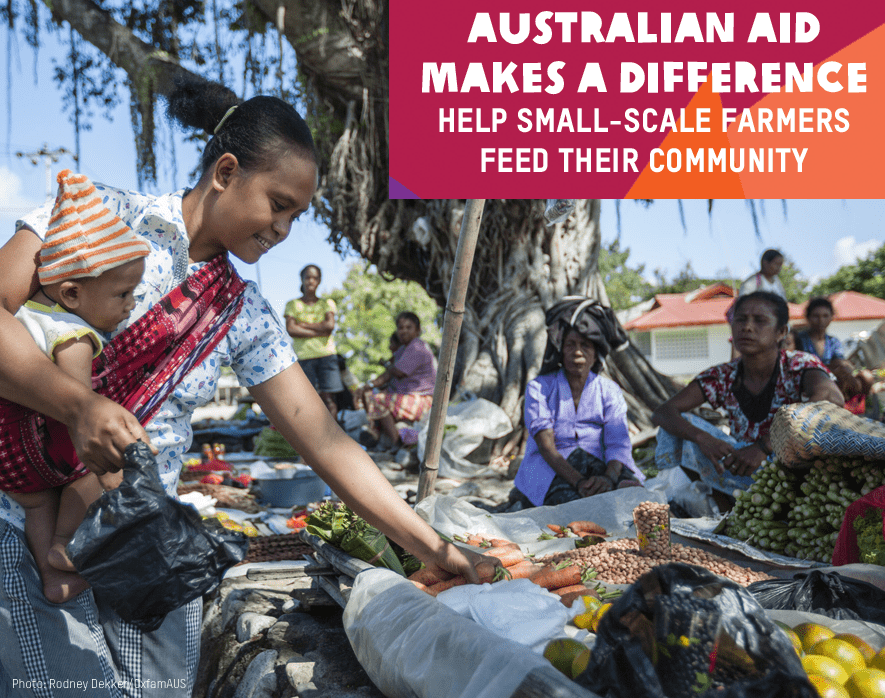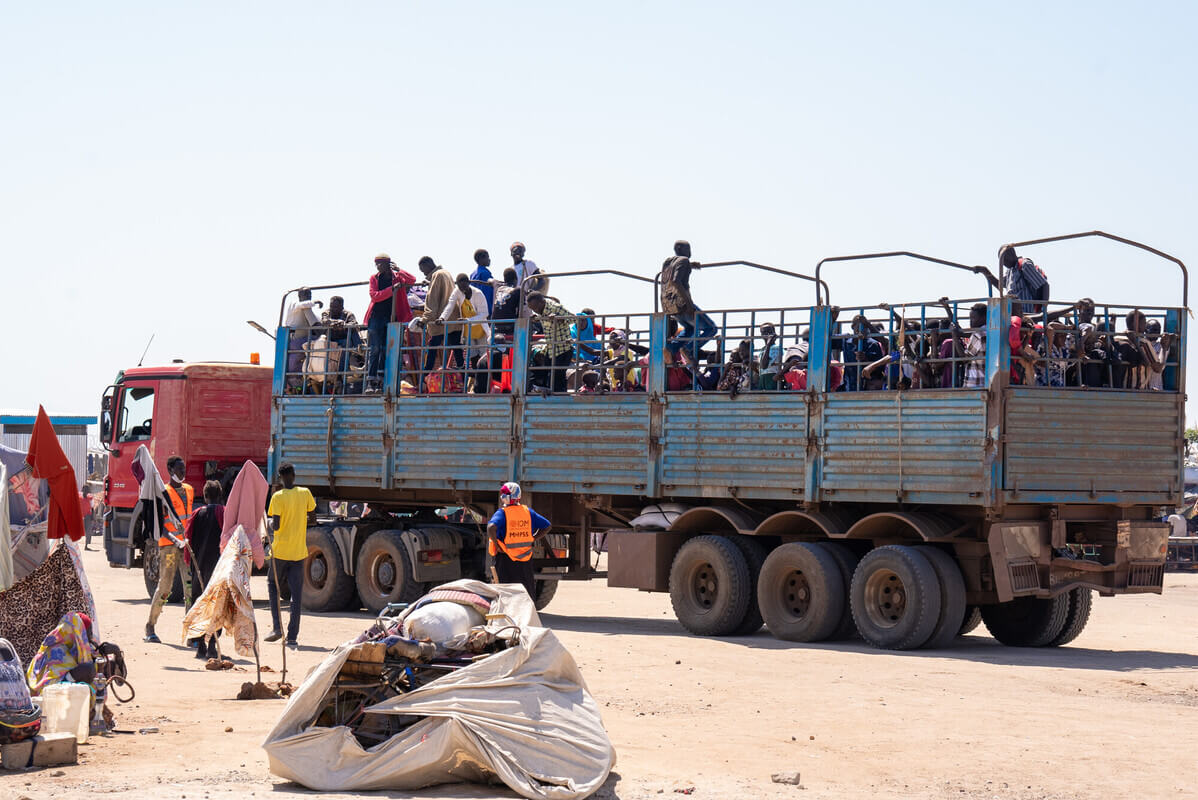1 in 8 people going hungry because of injustices in the global food system, but Australian aid can make a difference in building a fairer food system and helping small scale food producers feed their communities. We want leaders from all parties to commit to doubling aid for food security at this election.
The Australian Government currently spends 8% of its aid budget on food security. This is a step in the right direction – but it is still less than three cents in every $100 dollars of national income. Spending on food security provides critical support like agricultural research and training, access to small loans and credit, and social safety net initiatives for the poor.
There’s ample evidence that, when directed effectively, aid to food security can be transformative in helping families and communities out of poverty and hunger. This money could be used to provide poor communities with tools, training programs, drought resistant seeds and access to credit and loans to help ensure that everyone has enough to eat.
We know that aid directed at food security and supporting small-scale farmers can do so much to fight poverty and empower small communities. But we need to do more, which is why Oxfam Australia is asking for the Australian Government to double its aid going to food security.
In 2011, the UN Food and Agriculture Organisation estimated what governments and donors would need to spend to end hunger by 2025 and found that we all need to do much more: between them, donors (such as Australia) and developing country governments should be spending an additional $42.7 billion a year on food and agriculture. For Australia to pay its fair share of this, based on Oxfam’s calculations it should be giving more than double the aid we’re giving now to food security.
With one in eight people around the world going hungry, it’s time to do more for global food security.
Find out more about how you can share a meal and help GROW a future where everyone has enough to eat




